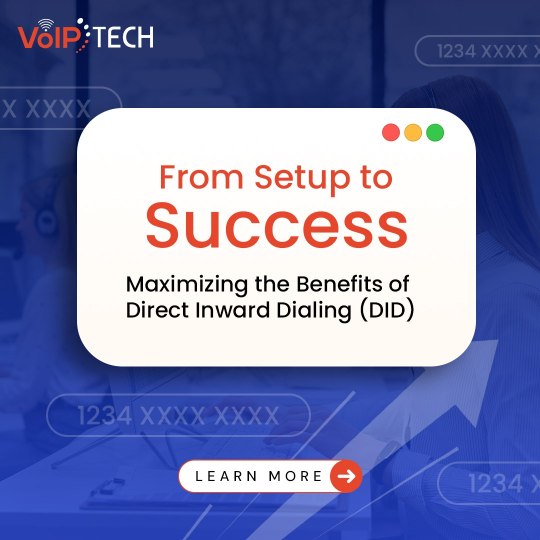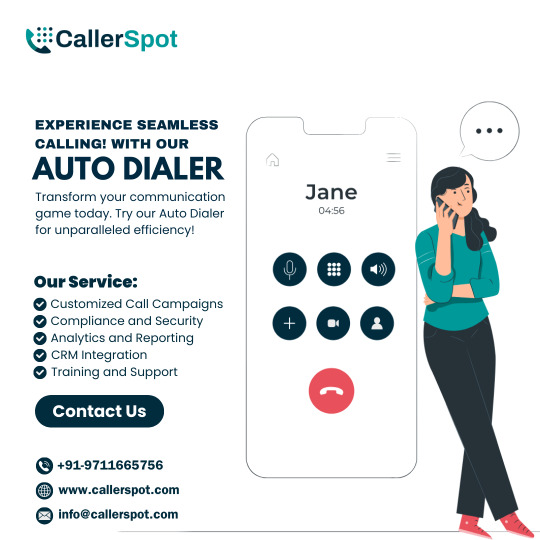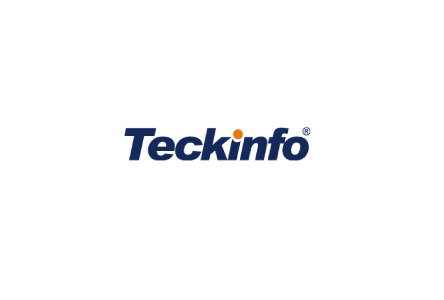#Auto dialer software
Explore tagged Tumblr posts
Text
3 notes
·
View notes
Text
Best Dialer For Cold Calling - Vicidial AI | GradCon Intl LLC
Boost call center performance with AI-powered Vicidial from GradCon Intl LLC. Our advanced call dialer software helps agents avoid voicemails, eliminate dead air, and reduce costly delays. With Clean FAS-Free VoIP routes, we ensure clear and reliable connections. Our American-owned and operated service provides secure, efficient dialing for better outreach.
Visit us to know more: https://www.gradconintl.com/vicidial-ai/

#Best Dialer For Cold Calling#vicidial software#vicidial auto dial#vicidial dialer#vicidial predictive dialer#vicidial call center#vicidial auto dialer#auto dialer software#ai dialer#power dialer software#call dialer software#outbound call center solutions#outbound call center services#call center software outbound
0 notes
Text
Content Marketing Trends to Boost Your Lead Generation Efforts in 2025

As we move into 2025, content marketing continues to evolve, and so does the approach to effective lead generation. The digital landscape is becoming more competitive, and to stay ahead, it’s essential to understand and implement the latest trends. Here’s a look at the top content marketing trends for 2025 that can supercharge your lead generation efforts.
1. Embracing AI-Driven Content Creation and Personalization
Artificial intelligence (AI) is transforming how we create, distribute, and personalize content. In 2025, expect AI to play an even more significant role in content marketing. By using AI-powered tools, marketers can analyze vast amounts of data to understand customer preferences and create personalized content that speaks directly to their needs.
How it boosts lead generation: Personalized content increases engagement, captures attention, and nurtures prospects effectively, leading to higher conversion rates.
2. Investing in Video and Interactive Content
Video content has been on the rise for years, but in 2025, interactive video and live-streaming will be more important than ever. Interactive elements such as clickable links, quizzes, or polls embedded in videos create a two-way experience, engaging viewers more actively.
How it boosts lead generation: Interactive content captures and holds user attention, providing deeper insights into customer preferences and encouraging lead form submissions.
3. Focusing on Content Experience
Content experience is all about presenting information in a way that is not only engaging but also provides value. This includes optimizing how your content is displayed across platforms, ensuring seamless navigation, and incorporating multimedia elements that keep readers engaged.
How it boosts lead generation: A well-crafted content experience retains visitors on your site, reducing bounce rates and giving you more opportunities to capture their interest with lead magnets.
4. Leveraging the Power of Podcasts and Audio Content
Podcasts and audio content are gaining popularity as consumers look for convenient, on-the-go ways to consume information. Incorporating audio content in your strategy allows you to reach audiences who may prefer listening to reading.
How it boosts lead generation: Podcasts can build brand authority and create a loyal following, ultimately driving listeners to your website or encouraging them to sign up for newsletters, gated content, or other lead-generating offers.
5. Implementing Data-Driven Content Strategies
Data is at the core of effective content marketing. With advanced analytics tools, marketers can identify which types of content drive the most engagement and conversions. This enables more strategic, data-driven decisions about what content to create, where to publish it, and how to promote it.
How it boosts lead generation: By focusing on content that resonates with your audience, you increase the chances of attracting qualified leads, streamlining the customer journey, and optimizing resources.
6. Emphasizing Long-Form, In-Depth Content
While bite-sized content is popular, long-form articles, guides, and eBooks provide in-depth insights that establish authority and trust. In 2025, content that dives deep into topics will be crucial for brands looking to stand out and build credibility.
How it boosts lead generation: Long-form content tends to rank higher on search engines, bringing in more organic traffic and nurturing potential leads by answering detailed questions that can build trust.
7. Expanding into Niche Communities and Content Platforms
More brands are targeting niche online communities and platforms like Reddit, Quora, and specialized forums to share expertise and interact with audiences in a genuine way. This helps brands tap into smaller but highly engaged communities that often have unmet needs.
How it boosts lead generation: Niche communities provide access to highly targeted leads, allowing brands to build relationships and convert community members into prospects.
8. Optimizing for Voice Search and Conversational Content
With the growing adoption of smart speakers and voice-activated assistants, optimizing content for voice search is becoming essential. Voice search queries are often longer and more conversational, so adjusting your content to match these patterns can improve visibility.
How it boosts lead generation: Optimized voice search content can drive more organic traffic from voice queries, making it easier for potential leads to discover your brand and convert.
9. Incorporating Sustainability and Social Responsibility
Consumers today are increasingly concerned about sustainability and social responsibility. Brands that address these topics and show a commitment to ethical practices can connect with audiences on a deeper level.
How it boosts lead generation: Purpose-driven content resonates emotionally with audiences, fostering loyalty and increasing the likelihood of attracting leads who share similar values.
10. Prioritizing Content Distribution Channels and Partnerships
Creating great content is only part of the equation — knowing where to distribute it is equally crucial. By focusing on high-value channels and partnering with influencers or relevant brands, you can amplify your reach and drive more qualified leads.
How it boosts lead generation: Strategic partnerships and focused distribution can expose your brand to new audiences, building credibility and expanding your lead pool.
Final Thoughts
As the digital landscape continues to evolve, staying ahead of these trends is essential for maximizing your lead generation efforts in 2025. By embracing personalization, investing in new content formats, and refining your distribution strategy, you’ll be well-equipped to attract, engage, and convert leads effectively. Stay adaptable, leverage data, and most importantly, continue creating valuable content that speaks to your audience’s needs.
direct inward dailing voip for call centers contact center solution dialer service voice over ip companies voip for education cheap voip india did vs toll free india voip provider what is voip did best voip dialer voip dialer software click to call solution provider voice over internet protocol providers voip india advantages of ivr best voice over ip phone service best cloud call center direct inward dialing providers voice over ip services voip did number direct call solutions technologies voip voip service provider india cloud calling solutions voice over internet protocol service providers voip providers india best cloud based call center solutions
#voip#call center service provider#voip minutes provider#call center solutions#callcenter#business#auto dialer software#best voip service#did direct inward dialing#best call center service providers
0 notes
Text

Choosing the Right Direct Inward Dialing Provider: Key Factors to Consider
Direct Inward Dialing (DID) is a powerful tool for businesses looking to streamline their communication systems and improve efficiency. However, selecting the right DID provider can be a daunting task with so many options available. Here are the key factors to consider when choosing a DID provider to ensure you make the best decision for your business.
1. Reliability and Uptime
Why It Matters: Reliable communication is crucial for any business. Frequent downtime can lead to missed calls, frustrated customers, and lost revenue. What to Look For: Check the provider’s uptime guarantees and read reviews to understand their reliability track record. Look for a provider that offers at least 99.99% uptime.
2. Coverage Area
Why It Matters: Depending on your business needs, you might require local, national, or international DID numbers. What to Look For: Ensure the provider offers DIDs in the regions where you need them. Some providers specialize in certain areas, while others offer global coverage.
3. Scalability
Why It Matters: As your business grows, your communication needs will evolve. What to Look For: Choose a provider that can easily scale with your business. This includes the ability to add new numbers, increase call capacity, and integrate with other systems as needed.
4. Pricing Structure
Why It Matters: Cost-effectiveness is crucial for maintaining a healthy bottom line. What to Look For: Compare pricing models, which can vary widely among providers. Consider setup fees, monthly fees, and per-minute rates. Look for transparent pricing with no hidden charges.
5. Features and Functionality
Why It Matters: Additional features can enhance your communication system and improve efficiency. What to Look For: Evaluate the features offered by the provider. Key features might include call forwarding, voicemail, SMS capabilities, call recording, and integration with CRM systems.
6. Customer Support
Why It Matters: Reliable customer support ensures that any issues are resolved quickly, minimizing disruption to your business. What to Look For: Look for providers that offer 24/7 customer support. Check reviews for feedback on their response times and the quality of their support services.
7. Security
Why It Matters: Protecting your communication systems from breaches is vital for maintaining privacy and compliance. What to Look For: Ensure the provider implements robust security measures, including encryption, fraud detection, and compliance with relevant regulations such as GDPR or HIPAA.
8. Ease of Integration
Why It Matters: Seamless integration with your existing systems can enhance efficiency and reduce the learning curve for your team. What to Look For: Verify that the DID provider supports integration with your current VoIP systems, CRM software, and other communication tools.
9. Quality of Service (QoS)
Why It Matters: High-quality voice and data transmission are essential for professional communication. What to Look For: Ask about the provider’s QoS protocols and how they ensure clear, uninterrupted calls. Look for features like bandwidth management and traffic prioritization.
10. Trial Period and Guarantees
Why It Matters: A trial period allows you to test the service before making a long-term commitment. What to Look For: Choose a provider that offers a free trial or a money-back guarantee. This gives you the opportunity to evaluate their service quality and suitability for your business needs.
Conclusion
Selecting the right Direct Inward Dialing provider involves careful consideration of various factors that impact reliability, cost, scalability, and overall functionality. By evaluating these key aspects, you can choose a provider that not only meets your current needs but also supports your business’s future growth and success.
#Auto dialer software#Best voip service#Call center service provider#Call center solutions#Direct inward Dialing#Voip for small business#Voip minutes provider
0 notes
Text
Predictive Dialer Software
Get answers to your most frequently asked questions about predictive dialer software. Learn how it works, its benefits, and what to consider when choosing the right solution for your business.
Request for Demo - https://www.vert-age.com/try-free-demo
Content Writer & SEO - Jai
All right reserved - Vert Age
#Predictive dialer software#predictive dialer solution#call center dialer software#auto dialer software
0 notes
Text

#vac#vacsofteckk#VEx#callingsolution#business#entrepreneur#callcenter#call center dialer#auto dialer software#ippbx#crm#whatsappapi#whatappconnect
1 note
·
View note
Text

Experience Seamless Calling! Boost Efficiency with Our Auto Dialer!
Transform your communication game today! Try our Auto Dialer for unparalleled efficiency!
0 notes
Text
Call Center IVR Software: Benefits, Uses, Best Practices

If you're running a call centre, you know that customer satisfaction is key. You also know that managing a call centre can be a lot of work. IVR software can help take some of the load off the agents by automating certain tasks.
But what is IVR software? And how can it benefit your call centre? In this article, we'll answer those questions and more. We'll also give you some best practices for using IVR software and tell you whether or not it's the right solution for your call centre.
What Is IVR Software?
IVR systems are computer systems that interact with callers to guide them through a series of options. IVR systems are often used by call centres as a way to automate customer service.
Some common features of IVR systems include
● The ability to play pre-recorded messages
● Collect input from the caller
● Route calls to the appropriate destination
IVR systems can be used for a variety of purposes, including customer service, sales, marketing, and even human resources.
How Can IVR Benefit Your Call Centre?
IVR systems can be a great addition to any call center, providing benefits such as increased productivity, improved customer satisfaction, and cost savings.
An IVR system can help to increase productivity in a call centre by automating customer service. This means that a lot of calls can be handled more quickly and efficiently, freeing up agents to deal with other tasks.
An IVR system can help to improve customer satisfaction by giving customers the option to reach a human agent if they are not able to resolve their issue through the automated system.
An IVR system can also help to save money for a call centre. This is because an IVR system can handle large volumes of calls without the need for additional staff.
In addition, an IVR system can help to reduce the amount of time that agents spend on each call, which reduces costs.
Is IVR the right solution for your call centre?
It depends on the specific needs of your business and your customers. However, there are some factors to consider that will help you decide if IVR is the right solution for your call center-
● Size of Your Call Centre
If you have a small call centre with only a few agents, IVR may not be necessary. However, if you have a large call centre with many agents, IVR can help to increase productivity by automating customer service.
● Type of Calls That Your Call Centre Receives
If most of the calls are simple and can be easily handled by an automated system, then IVR may be a good solution. However, if most of the calls are complex and require human interaction, then a multi-level IVR may be the best solution
● The Needs of Your Customers
If your customers are comfortable using an automated system and do not need to speak to a human agent, then IVR may be a good solution. However, if your customers prefer to speak to a human agent or if they have complex questions that need to be answered, then the IVR solution would need to have the smart outing capabilities.
Conclusion
When determining if an IVR system is the best solution for your call centre, there are several factors to consider. The size of your call centre and the types of calls you typically receive are two important factors. Additionally, you need to take into account the needs of your customers when making a decision. By taking all of these factors into consideration, you can determine which IVR system is right for your call centre.
#predictive dialer#call center dialer#hosted call center solutions#auto dialer software#predictive dialer software#call center solutions#ivr software#omnichannel contact center software#cloud call center software#outbound call center software
1 note
·
View note
Text
How Auto Dialers Can Increase Call Center Productivity
In today's fast-paced business world, call centers play a vital role in customer engagement and support. They serve as the frontline for businesses, connecting with customers and addressing their needs. However, the effectiveness and efficiency of a call center depend on various factors, one of which is the technology it employs. Auto dialers Software are one such technology that has revolutionized call center operations. In this article, we will delve into how auto dialers can significantly increase call center productivity.

Understanding Auto Dialers
Before delving into the ways auto dialers enhance call center productivity, it's essential to understand what auto dialers are and how they function.
An auto dialer is a computerized system designed to automate the process of dialing phone numbers and connecting agents with customers. These systems use algorithms to make calls from a predefined list of numbers, and they can operate in several modes, including preview dialing, predictive dialing, and progressive dialing.
Preview Dialing: In this mode, agents have the opportunity to preview customer information before making a call, allowing them to prepare and personalize their interactions.
Predictive Dialing: Predictive dialers use advanced algorithms to predict when an agent will become available and dial multiple numbers simultaneously. The goal is to connect agents with live calls as soon as they finish their current conversations.
Progressive Dialing: Progressive dialers call one number at a time and only dial the next number when an agent becomes available. This mode provides a slower but more controlled approach to outbound calling.
Improving Call Center Productivity with Auto Dialers
Now that we have a clear understanding of what auto dialers are, let's explore how they can enhance call center productivity:
Increased Agent Efficiency
One of the primary advantages of auto dialers is the significant increase in agent efficiency. With predictive dialing, agents spend more time talking to customers and less time manually dialing numbers or waiting for calls to connect. This improved efficiency translates into a higher number of calls handled by each agent, leading to a boost in overall productivity.
Reduced Downtime
Auto dialers minimize downtime for agents. Instead of agents waiting for the next call to come in, predictive dialers keep them engaged continuously. This not only maximizes their productivity but also keeps them focused on their tasks, reducing idle time and boredom.
Enhanced Call Management
Auto dialer Solution offer sophisticated call management capabilities. They can prioritize calls based on various factors, such as customer preferences, call history, and agent skills. This ensures that the most critical calls are routed to the most suitable agents, improving the quality of customer interactions and increasing the chances of successful resolutions.
Efficient Lead Management
Call centers often rely on extensive lists of leads or potential customers. Auto dialers can seamlessly integrate with customer relationship management (CRM) systems, allowing for efficient lead management. Agents can access customer profiles and call histories, enabling them to provide personalized service and improve the chances of successful conversions.
Compliance and Monitoring
Auto dialers come equipped with features that ensure call center compliance with regulations such as the Telephone Consumer Protection Act (TCPA). They can automatically scrub call lists against "Do Not Call" registries and record consent for telemarketing calls. Furthermore, these systems enable call monitoring, allowing supervisors to assess agent performance, provide real-time feedback, and ensure adherence to quality standards.
Increased Reachability
Auto dialers can significantly increase reachability. In predictive dialing mode, they continuously dial numbers, ensuring that agents are always engaged with live calls. This means that a call center can reach a more extensive customer base in a shorter amount of time, increasing the potential for sales, support, or survey interactions.
Real-time Analytics and Reporting
Auto dialers provide real-time analytics and reporting features that offer insights into call center operations. Supervisors can monitor key metrics, such as call volume, agent performance, and call outcomes, in real-time dashboards. This data-driven approach allows for quick decision-making and the ability to make adjustments to optimize productivity.
Challenges and Considerations
While auto dialers come with a host of advantages, it's essential to be mindful of the various challenges and considerations they entail. Here's a comprehensive overview to provide you with the information you need.:
Regulatory Compliance : Call centers must be vigilant about adhering to legal and ethical standards when using auto dialers. Failure to do so can result in regulatory fines and damage to the brand's reputation.
Call Quality : Although auto dialers increase call volume, maintaining call quality is essential. Agents should still provide excellent customer service and avoid rushing through calls to maximize productivity.
Agent Training : Proper training is crucial when implementing auto dialer technology. Agents need to understand how to use the system effectively and how to manage customer interactions in an automated environment.
Scalability : Call centers should choose auto dialer solutions that can scale with their growing needs. Scalability ensures that the system can adapt to changes in call volume and business expansion.
Data Security : Protecting customer data is paramount. Call centers must implement robust security measures to safeguard sensitive customer information from potential breaches.
Conclusion
Auto dialers have become indispensable tools for modern call centers looking to increase productivity and efficiency. These systems automate the dialing process, reduce agent downtime, enhance call management, and offer real-time insights. However, their successful implementation requires a commitment to regulatory compliance, call quality, agent training, scalability, and data security.
In today's fiercely competitive business environment, where fostering meaningful customer engagement is paramount, call centers that leverage the capabilities of auto dialers can make substantial enhancements to their operational efficiency. Through the optimization of agent performance, reduction of idle time, and implementation of more effective call handling strategies, auto dialers enable call centers to not only deliver outstanding customer experiences but also achieve elevated levels of productivity. If you have any further questions or require additional information, please don't hesitate to contact us.
0 notes
Text
2 notes
·
View notes
Text
Tips to Choose the Best Auto Dialers for Your Business
Selecting the most appropriate products and services can be a challenging task for small and large businesses, which can be accomplished only after years of hard work and concentration. Fortunately, things are a little easier in a contact center, since only a few of the software can boost productivity and maximize revenue.
This metric is particularly important when outbound contact centers are also concerned with sales and conversions and not just customer service. An auto-dialer automates this process by making multiple calls simultaneously and bypassing busy or disconnected numbers to available agents.
However, many people have difficulty choosing the best auto dialer software for their business, which is designed specifically according to the latest features and solutions.
Therefore, if you are in the process of searching for an auto dialer and want some reliable ways to optimize and increase call rates immediately, you need an efficient understanding of auto dialers.
What is an auto dialer?
Auto dialer software lets an agent or operator dial telephone numbers automatically and can also record messages for customers. These have evolved and have become more complex with the advancement of technology. In response to this technology, we now have predictive dialers, progressive dialers, and preview dialers. Here’s a brief overview of each.
The Predictive dialer allows you to maximize both efficiency and the number of calls you make. A contact center agent automatically answers the next call when available. These are ideal tools for contacting customers. The dialing rate is sped up and slowed down to increase agent talk time and reduce drop-off rates. This is an efficient means of reaching the highest number of customers in the least amount of time.
A Progressive dialer calls the number from a list automatically, when an agent is available. Whenever an agent is connected to a call, it stops dialing until the agent ends the call, and then it begins again. This enables more private and effective interactions between agents and customers.
A Preview dialer, on the other hand, gives agents the power to make each call. The system enables them to view customer records and product details before making a call. This helps agents prepare for customer interactions and improves the quality of sales calls. This is great for small sales contact centers.
What to look for when choosing an auto dialer for your business?
When choosing a good auto dialer, it is better to decide which features you need. Once you have created a list of all the features you need, then you might be able to find a solution that suits your business needs.
So, now that we have discussed some auto dialer options, which one does your business need? Below are the features that you should look at and select the best auto dialer software for your business:
Dynamic Caller ID
Dynamic caller ID lets users customize the number displayed. Using this method, you can specify different numbers for different calls based on their purpose. A customizable caller ID lets you choose which number to display. You can display the toll-free number or local number for any area you are calling. Moreover, callers can dial a local number or a toll-free number without incurring high rates because they will dial a local or toll-free number.
Answering Machine Detection
With Detect Answering Phone, you can identify the recipient of an outgoing call and customize your call flow accordingly. This allows you to determine whether a human, answering machine, or fax machine has picked up an outbound voice API call. Then, the caller is connected to the call after it has been processed and made its decision.
Call Scheduling
The call scheduling feature identifies the assigned and available agent when an instance is assigned. With the call scheduling feature, you can ensure that dedicated agents are available to respond to issues as they arise. Using this platform, you can set up call schedules, staff rotations, and escalation procedures, find out who to contact in case of an emergency, and set up call notifications.
Live Call Monitoring
Monitoring calls is the practice of listening to agents’ interactions to track and improve their performance and to provide a more engaging customer experience. In contrast to call listening, call monitoring provides all agent-related information such as agent availability, agent in-conversation, and availability online, as well as agent compliance with service levels. These metrics can be monitored and tracked by administrators through the live dashboard.
Conclusion
Introducing new technology into your business can either make or break it. There is no perfect software that fits all solutions, so you may have to go through a trial-and-error process until you find the software that offers the best value. However, by following the suggestions above, your chances of failure will be significantly reduced. Take time to research your market, choose a suitable auto dialer, and watch how it extracts the most value from your outbound sales calls.
AC InfoSoft offers the best call center solutions loaded with top features along with auto dialers to empower businesses. Visit
https://www.acinfosoft.com/call-center-solutions/
to explore more about the top call center solutions offered by AC InfoSoft.
0 notes
Text

Content Marketing Trends to Boost Your Lead Generation Efforts in 2025
As we move into 2025, content marketing continues to evolve, and so does the approach to effective lead generation. The digital landscape is becoming more competitive, and to stay ahead, it’s essential to understand and implement the latest trends. Here’s a look at the top content marketing trends for 2025 that can supercharge your lead generation efforts.
1. Embracing AI-Driven Content Creation and Personalization
Artificial intelligence (AI) is transforming how we create, distribute, and personalize content. In 2025, expect AI to play an even more significant role in content marketing. By using AI-powered tools, marketers can analyze vast amounts of data to understand customer preferences and create personalized content that speaks directly to their needs.
How it boosts lead generation: Personalized content increases engagement, captures attention, and nurtures prospects effectively, leading to higher conversion rates.
2. Investing in Video and Interactive Content
Video content has been on the rise for years, but in 2025, interactive video and live-streaming will be more important than ever. Interactive elements such as clickable links, quizzes, or polls embedded in videos create a two-way experience, engaging viewers more actively.
How it boosts lead generation: Interactive content captures and holds user attention, providing deeper insights into customer preferences and encouraging lead form submissions.
3. Focusing on Content Experience
Content experience is all about presenting information in a way that is not only engaging but also provides value. This includes optimizing how your content is displayed across platforms, ensuring seamless navigation, and incorporating multimedia elements that keep readers engaged.
How it boosts lead generation: A well-crafted content experience retains visitors on your site, reducing bounce rates and giving you more opportunities to capture their interest with lead magnets.
4. Leveraging the Power of Podcasts and Audio Content
Podcasts and audio content are gaining popularity as consumers look for convenient, on-the-go ways to consume information. Incorporating audio content in your strategy allows you to reach audiences who may prefer listening to reading.
How it boosts lead generation: Podcasts can build brand authority and create a loyal following, ultimately driving listeners to your website or encouraging them to sign up for newsletters, gated content, or other lead-generating offers.
5. Implementing Data-Driven Content Strategies
Data is at the core of effective content marketing. With advanced analytics tools, marketers can identify which types of content drive the most engagement and conversions. This enables more strategic, data-driven decisions about what content to create, where to publish it, and how to promote it.
How it boosts lead generation: By focusing on content that resonates with your audience, you increase the chances of attracting qualified leads, streamlining the customer journey, and optimizing resources.
6. Emphasizing Long-Form, In-Depth Content
While bite-sized content is popular, long-form articles, guides, and eBooks provide in-depth insights that establish authority and trust. In 2025, content that dives deep into topics will be crucial for brands looking to stand out and build credibility.
How it boosts lead generation: Long-form content tends to rank higher on search engines, bringing in more organic traffic and nurturing potential leads by answering detailed questions that can build trust.
7. Expanding into Niche Communities and Content Platforms
More brands are targeting niche online communities and platforms like Reddit, Quora, and specialized forums to share expertise and interact with audiences in a genuine way. This helps brands tap into smaller but highly engaged communities that often have unmet needs.
How it boosts lead generation: Niche communities provide access to highly targeted leads, allowing brands to build relationships and convert community members into prospects.
8. Optimizing for Voice Search and Conversational Content
With the growing adoption of smart speakers and voice-activated assistants, optimizing content for voice search is becoming essential. Voice search queries are often longer and more conversational, so adjusting your content to match these patterns can improve visibility.
How it boosts lead generation: Optimized voice search content can drive more organic traffic from voice queries, making it easier for potential leads to discover your brand and convert.
9. Incorporating Sustainability and Social Responsibility
Consumers today are increasingly concerned about sustainability and social responsibility. Brands that address these topics and show a commitment to ethical practices can connect with audiences on a deeper level.
How it boosts lead generation: Purpose-driven content resonates emotionally with audiences, fostering loyalty and increasing the likelihood of attracting leads who share similar values.
10. Prioritizing Content Distribution Channels and Partnerships
Creating great content is only part of the equation — knowing where to distribute it is equally crucial. By focusing on high-value channels and partnering with influencers or relevant brands, you can amplify your reach and drive more qualified leads.
How it boosts lead generation: Strategic partnerships and focused distribution can expose your brand to new audiences, building credibility and expanding your lead pool.
Final Thoughts
As the digital landscape continues to evolve, staying ahead of these trends is essential for maximizing your lead generation efforts in 2025. By embracing personalization, investing in new content formats, and refining your distribution strategy, you’ll be well-equipped to attract, engage, and convert leads effectively. Stay adaptable, leverage data, and most importantly, continue creating valuable content that speaks to your audience’s needs.
direct inward dailing voip for call centers contact center solution dialer service voice over ip companies voip for education cheap voip india did vs toll free india voip provider what is voip did best voip dialer voip dialer software click to call solution provider voice over internet protocol providers voip india advantages of ivr best voice over ip phone service best cloud call center direct inward dialing providers voice over ip services voip did number direct call solutions technologies voip voip service provider india cloud calling solutions voice over internet protocol service providers voip providers india best cloud based call center solutions
#voip#call center service provider#voip minutes provider#callcenter#call center solutions#business#auto dialer software#best voip service#did direct inward dialing#best call center service providers
0 notes
Text
#call center software#predictive dialer#coldcalling#Telecalling#lead generation#auto dialer software
0 notes
Text
Today all business need a CRM Software.
YES / NO
#auto dialer software#call center dialer software#best auto dialer software#call dialer#crm software#crm software solution#custom crm software#vertagedialer
0 notes
Text
Best Auto Dialer for Small Businesses: Boost Productivity & Sales

For small businesses looking to streamline their customer outreach, an auto dialer is a game-changer. It automates the dialing process, saving time and increasing efficiency for sales and support teams. At Kommuno, we offer a smart, cloud-based auto dialer that helps small businesses connect with more customers effortlessly. Why Small Businesses Need an Auto Dialer
✅ Saves Time – Eliminates manual dialing, allowing agents to focus on conversations. ✅ Increases Call Efficiency – Connects to live callers only, reducing time wasted on voicemails and unanswered calls. ✅ Improves Lead Conversion – Speeds up follow-ups, ensuring no potential customer is missed. ✅ Cost-Effective – A budget-friendly solution tailored for small businesses. Why Choose Kommuno’s Auto Dialer?
Our cloud-based auto dialer offers seamless integration, real-time analytics, and customizable call flows to enhance business communications. Whether you run a call center, sales team, or customer support service, Kommuno ensures high call success rates and improved customer engagement.
📞 Ready to grow your business? Try the best auto dialer for small businesses with Kommuno today! 🚀
0 notes
Text
Auto Dialer Telephony System for Call Centers
With the SanIPPBX Auto Dialer, you can efficiently automate your outbound calls and deliver your audio messages and menus directly to your clients upon answering the call.The San IPPBX Auto Dialer empowers live staff members to focus solely on their daily tasks during business hours. And, after hours, the Auto Dialer takes charge and effectively reaches out to clients to prepare for the next business day. Not only this, by using SAN Softwares' IPPBX, you will gain some special features like- live call monitoring, CDR Dashboard to Monitor Outgoing/Incoming/Intercom/Missed Calls, Peak Hours Report, etc.
#Auto Dialer#IPPBX System#Cloud Telephony#Call Center Dialer#Predictive Dialer#IP Phone System#Cloud PBX Phone System#IPPBX Software
1 note
·
View note